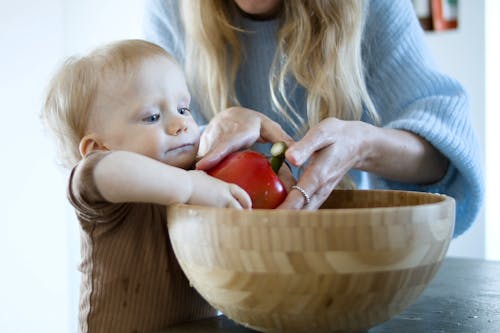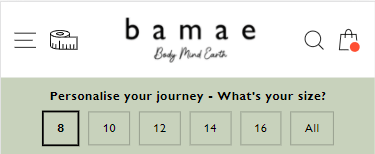What does a perfect mother look like to you? We tend to have this very pristine image of what parenthood is, particularly what it means to be a good mother. It’s thought that a mother will instantly love her child more than anything else in the world, and the relationship will fall into place naturally. Yet with society moving towards a more open view on mental health, and with talking about issues becoming increasingly the norm, a more realistic view of motherhood is coming to the surface. Motherhood can be an isolating experience, and talking about these feelings can help to remove the stigma surrounding what it means to be a good mother.

A strange reflection..
An interesting place that these mother-child relationships can be seen is in horror films- spooks and monsters aside, very often these films reflect some of the more common fears and insecurities that society faces. An interesting trope in horror movies is the shift of monsters representing motherhood and embodying the taboo of not fitting into the stereotypical motherly role. In films like The Babadook and Hereditary, the mother and child relationship is strained due to familial baggage and grief.
It’s considered taboo to not love your child wholeheartedly, and the maternal figures in these films do absolutely love their children. But the scenarios that they are presented with are bleak and isolating, often with very little means of emotional support or outlet. In The Babadook, the monster represents the mother’s inability to move on from the loss of her husband and the pressure she feels raising their son alone. In Hereditary, the film discusses how the matriarch of the family felt emotionally disconnected from her mother, and how these feelings were then passed down to her own children. These films demonstrate how these feelings cannot be suppressed, and can eventually fester into feelings of resentment and emerge in unhealthy behaviours.
Through talking about these feelings and showing that motherhood is an emotional rollercoaster, we can make it easier for mothers to find emotional support.

The heart of the issue
Raising A child takes a lot of time and effort, and can exhaust you. It is often an incredibly isolating experience for most mothers. Yet to say this at all will make some people feel incredibly uncomfortable. For many new mothers, there is a new sensation of loneliness that rarely gets talked about. Research shows that approximately 58% of new mothers reported feelings of loneliness throughout their pregnancy, with this number rising to just under 70% when their child was between the ages of 1 to 5 years old. Despite these statistics, there is a cloud of shameAnother pretty big taboo- it’s not acceptable to admit that your happiness levels have declined since having a child. There are studies to suggest that happiness tends to drop substantially until the child reaches college age. There are many reasons that this might happen, such as the restrictions that come with looking after a child, or perhaps struggling with financial and social changes.
Looking at data like this can make us uneasy- isn’t having a child meant to be one of the purest loves you can feel? We often think of love in terms of binary- you either love something or you don’t. If you love your child then everything else is secondary. Yet life doesn’t stop when a child comes into the world, and you don’t stop being who you were before you were a mother, you are now also a mother. Reconciling these two identities can take work, and is far more natural a process for some people than for others.
Breaking taboos
The ideas we have about motherhood simplify it down into those that are good and bad mothers- those who are natural mothers and those that struggle. Yet as with anything, each individual experience is entirely unique, and should in no way be reduced to marks on paper. Easier said than done though right? There is often the idea that because we are biologically equipped to be mothers, that if things don’t go according to plan then we are in some way underperforming- an outdated idea but one that seems to just keep popping up.
For a lot of people, parenthood can also mean a loss of control, sometimes in areas that you’ve never had to think twice about before. Changing your behaviour and mindset takes a lot of work, and can be an exhausting experience. It’s a rather British mindset, to conceal how we feel and to find strength in powering through. Don’t get me wrong this method has its perks, but it can also encourage us to avoid addressing our emotional needs, and can increase shame because everyone feels isolated by their own experiences.
Motherhood is a wonderful thing, but it’s important to understand that even though parenthood can bring out the highest emotional highs, it can bring with it some pretty low lows too. That is the same as any big life change and is not something to be ashamed of. Creating a more realistic view of parenthood and what that can be like can help future mothers to avoid falling into the same pitfalls. Communication and representation really are very important, and we need to give everyone a chance.




